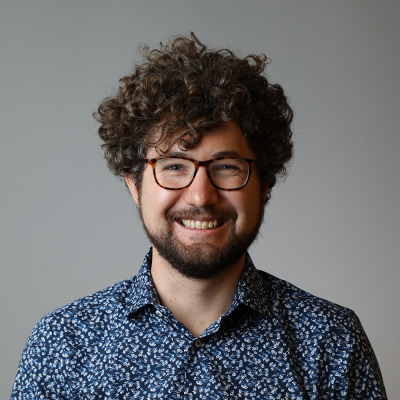Ambition, collaboration and creativity: learning from health improvement communities in the US
13 May 2019

How do you bring patients, the public and health care professionals together to improve care? We’re exploring this question through a new funding programme launching in 2020, and last month I visited the US to meet some of the people and organisations who are inspiring our work.
Improving care for chronic conditions
My first stop was Dallas, Texas, for a community conference organised by ImproveCareNow, a network of clinicians, patients and families working together to improve outcomes for children with Crohn’s disease and colitis.
The conference cemented the relationships between these groups, but also celebrated the work they’d done – particularly the incredible young people who lead the network’s Patient Advisory Council.
Talking to Peter Margolis and Michael Seid, who helped found the programme, I learnt that much of the network’s success has resulted from focusing on a clearly defined set of clinical outcomes and setting what felt at the time like unreasonable ambitions.
Now that many of these ambitions have been met, one of the conference’s aims was to set new priorities for improving treatment outcomes. I could feel the tensions as doctors, families and young people balanced the network’s goals with the day-to-day realities of clinical work. It was hard to imagine these conversations working without the goodwill and trust that existed between everyone involved.
Tackling mental health alongside the community
Next on my itinerary was Los Angeles. For over a decade, clinicians at UCLA’s Semel Institute have worked with under-resourced communities across LA to improve mental health care. The common thread to all their work has been building relationships with community organisations to share power and challenge inequality.
One of their closest partners is Healthy African American Families (HAAF), whose founder Loretta Jones – a lifelong activist for better health in minority communities – died last year. I met the team of dedicated staff and volunteers who are continuing her mission.
Our conversation was intense and often uncomfortable: African American, Latino and Korean communities in LA have experienced material hardship, racism and often poor care and treatment. People spoke of the difficulty of building trust with a medical establishment that is perceived as indifferent or even hostile to their communities’ needs.
Their answer is to bring community leaders into clinical research, giving them the skills and confidence to work on an equal footing with clinicians to design and test improvements to care. Some of those leaders told me it was vital they owned the outcomes of this work. For instance, by developing the ability to analyse data themselves instead of relying on academics, the community knew they were true partners, not just a laboratory.
Bringing everything to the table
What struck me most about these two very different communities was the open attitude everyone brought to their work. I met patients, parents, professionals and community leaders who were bringing their whole personalities, experiences and creativity to work towards a shared purpose, and who were open to learning from each other’s experiences.
I spent an evening with Jerome and Claire Monachino, parents and active members of the ImproveCareNow network. Jerome is an accomplished guitarist, and played several times during their conference – performing was part of his contribution to a community that has given his family a great deal in return.
Meanwhile Kenneth Wells, who leads the team at UCLA, told me over lunch about his parallel career as a composer. His opera The Centre Cannot Hold, is based on a memoir of schizophrenia by Elyn Saks. For him, while the worlds of clinical psychiatry and music might be separate, they speak to one another.
Talking later to Bowen Chung, one of the lead clinicians at UCLA, I was struck by how he and his colleagues had been changed by working with organisations like HAAF. They were willing not just to be challenged, but to adapt their approach to the communities they were working with and understand and respect their views and priorities.
And before I left, I had time for coffee with Ann English, who leads Speak Up!, a programme that coaches people with experience of homelessness to become advocates for better housing. Ann remarked to me that the actors who volunteered to run her workshops had a different way of seeing the people they worked with – focusing on their assets and their stories, not on their problems.
Making ambition a reality
We often think of engaging patients and the public as a project or a process, but the conversations I had persuaded me that it’s more of an artform. Even when you have a clear ambition for change – as all the communities I spent time with did – it takes practice and experimentation to make it a reality.
The communities I met prove what’s possible, but they also challenge our assumptions about who can lead health care improvement. Our new programme is being shaped by patients, families and clinicians who are ambitious about what’s possible here in the UK. If you have ideas too, we’d love to hear them. Just email us at patientsandclinicians@health.org.uk
Sam Thomas (@iamsamthomas) is Programme Manager in Improvement at the Health Foundation.
Work with us
We look for talented and passionate individuals as everyone at the Health Foundation has an important role to play.
View current vacanciesThe Q community
Q is an initiative connecting people with improvement expertise across the UK.
Find out more

